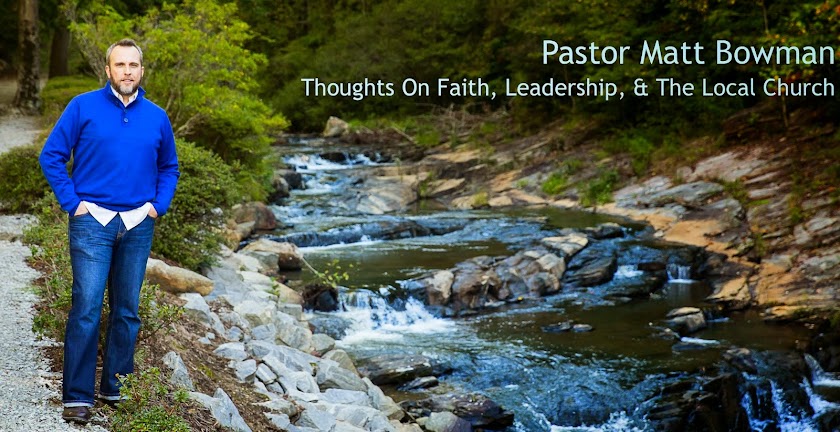We've all been in awkward situations. Blind dates, first dates, getting caught in a lie, wearing the same outfit as someone else at an event, they're all examples of when things get awkward & the tension goes up. In fact, we're all so worried about awkward situations or conversations that we've come up with some social rules to try to keep us from getting into one of those weird, awkward, tense moments.
Here are just a few examples:
"Never talk about religion or politics."
"Never assume a woman is pregnant."
"Never ask a woman her age."
"Never ask a woman her weight."
Notice how some of these that I just thought of off the top of my head revolve around not asking women sensitive things? That's because most of us men are too oblivious to realize there are some things you just don't do. Therefore rules had to be made to keep us out of trouble. Well, there's a similar rule that is at play in a lot of churches. It's an unwritten, even unspoken, rule, but it's alive & well in most places because it's an issue that always ramps up the tension & makes everyone feel a little awkward. So we end up ignoring this issue, but in ignoring we also ignore an issue that Jesus, whom we claim to follow, talked about a lot. Doesn't it seem weird to avoid a subject our Savior talked about so much & therefore miss out on what He had to say about it? So what is this issue? What is this thing we don't really like talking about, even if it means completely missing out on what Jesus had to say about it?
It's money.
That's right, money. Nobody likes talking about it, not pastors & certainly not the people the pastors are talking to about it. It makes us all a little uneasy. However, not talking about it may cost us more than actual wading into a tense subject.
When Jesus was confronted with the issue of money, politics, & religion in Luke 20:20, he didn't focus as much on money as we might think. The point He made was this, "Give to God what belongs to God." He used the money as a vehicle to teach a powerful truth. The coin was made in the image of Caesar. Humanity is made in the image of God. The lesson: If Caesar asks for the thing made in his image, give it to him, but more importantly make sure you give to God the thing made in His image. In that little exchange Jesus taught us a powerful lesson about money, faith, & the biblical concept of stewardship.
"Stewardship Is Not About Your Money. Stewardship Is About Your Life."
Jesus had an opportunity to go in depth about money in this moment, but instead He chose to look at the big picture. The truth is that it doesn't really matter who you dedicate your life to if you dedicate your life to the wrong thing. God has made us in His image. Therefore, everything about you should be leveraged to glorify Him: your day to day life, your family, your relationships, your work, your ministry, & yes, your money & stuff. As followers of Jesus, we are not only made in God's image, we've been bought with a price by the blood of Jesus. Therefore, we must seek to live a life that in every way declares our faith in Him rather than in ourselves or in the things of this world. Stewardship isn't about money. It's about a journey of faith where we seek to live a life that is constantly more & more devoted to trusting in our Heavenly Father, His Son, & His word.
What step of faith have you been resisting? Reading God's word more consistently? Becoming the godly parent your children need? Being the spouse you're called to be in Christ? Serving your congregation community? Trusting God with your finances? No matter which one of these you're wrestling with, they're all stewardship issues. After all, stewardship is not about your money. It's about your life.




